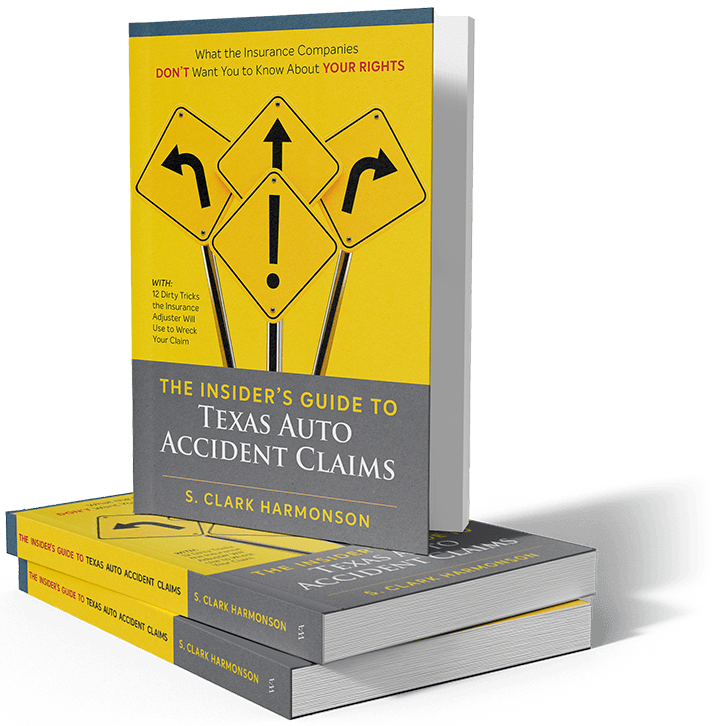
El Paso Motorcycle Accident Lawyer
An El Paso Motorcycle Accident Attorney Who Will Fight For Your Rights
When motorcycle accidents occur, the consequences can be devastating. Unfortunately, it is usually the motorcyclist who suffers the brunt of the impact in such instances as they are relatively much less protected than drivers in cars, trucks, and other motor vehicles. Even when wearing protective clothing, helmets, and other safety gear, motorcyclists often suffer severe or catastrophic injuries or even death when they are hit by other motorists.
If you were injured in a motorcycle accident or had a loved one who was killed in a motorcycle collision, our El Paso motorcycle accident attorney can help you fight for a fair recovery.
We understand just how difficult it is to deal with these situations, which is why we offer compassionate legal guidance every step of the way. When you trust your case to Harmonson Law Firm, you can rely on aggressive advocacy and uncompromising representation.
If you or your loved one was recently injured in a motorcycle accident, Harmonson Law Firm can fight for your legal rights. Contact us at (915) 233-6427 today.
Texas Motorcycle Laws
In Texas, motorcycle laws are designed to ensure the safety of riders while promoting responsible riding practices. One of the most important requirements is the need for a motorcycle license or endorsement. To operate a motorcycle legally, a rider must have a Class M license. This can be obtained by completing a Basic Motorcycle Operator Training Course approved by the Texas Department of Licensing and Regulation (TDLR). Riders under 18 must also pass a motorcycle road test and meet additional graduated driver license requirements.
Helmet laws are specific and partially conditional. Riders under the age of 21 are required by law to wear a helmet at all times while riding a motorcycle. However, riders aged 21 and older can choose not to wear a helmet if they have either completed a state-approved Motorcycle Operator Training Course or carry at least $10,000 in medical insurance coverage. Even so, law enforcement officers are not permitted to stop riders solely to check helmet or insurance compliance.
The state also requires that motorcycles meet certain equipment standards. All motorcycles must have at least one and no more than two headlights, a functioning tail light, a brake light, reflectors, a horn, rearview mirrors, and a muffler. Additionally, motorcycles must be inspected annually and display a valid inspection sticker. Turn signals are required for motorcycles manufactured after 1973.
When it comes to lane usage, lane splitting (riding between lanes of traffic) is illegal in Texas. Motorcycles are entitled to a full lane, just like other motor vehicles, and riders are expected to follow the same traffic rules as cars. However, two motorcycles may ride side by side in a single lane if both riders agree to it.
Lastly, state passenger laws stipulate that a motorcycle must be equipped with a designated passenger seat and foot pegs if it is carrying another person. There is no minimum age requirement for passengers, but they must be able to reach the foot pegs and securely sit on the seat.
When Can Motorcycle Accidents Be Attributed to Negligence?
Examples of common causes of motorcycle accidents that may be attributed to negligence include but are not limited to:
- Drivers failing to follow right-of-way laws
- Vehicle blind spots and/or low visibility
- Crossing into a motorcyclist’s path/lane
- Ill-consideration for motorcycles as vehicles
- Distracted driving, including cell phone use
- Poor judgment of speed or distance
- Making unsafe turns in front of motorcyclists
- Faulty or defective motorcycle parts
- Driving under the influence of alcohol and/or drugs
There are hundreds of examples of negligence that can lead to a motorcycle collision, including drivers who simply do not notice a motorcyclist near them or fail to take into account their safety. In such instances, the injured motorcyclist should not have to suffer the consequences on his or her own. Our firm is prepared to stand up to major insurance companies in order to help you fight for the full fair recovery you are owed. Our El Paso motorcycle accident attorney has more than 16 years of experience that he is ready to put to work for you.
Common Types of Motorcycle Accident Injuries
Motorcycle accidents often result in more severe injuries than car accidents due to the lack of physical protection. Here are the most common types of injuries riders might suffer:
- Head and Brain Injuries: Head and brain injuries can range from mild concussions to severe traumatic brain injuries (TBI). These injuries often lead to long-term cognitive effects and may require extensive rehabilitation.
- Road Rash: Road rash occurs when the skin scrapes against the road surface, causing painful abrasions or deep tissue damage. In severe cases, it may require skin grafts and can lead to infections or scarring if not treated properly.
- Fractures and Broken Bones: Motorcycle accidents frequently cause fractures, particularly in the arms, legs, wrists, and collarbones due to impact. Pelvic and rib fractures are also common, often resulting from high-speed crashes or direct collisions.
- Chest and Abdominal Injuries: Injury to the chest and abdomen can result in internal bleeding, organ damage, or collapsed lungs. These injuries are particularly dangerous and require immediate medical attention due to the risk of life-threatening complications.
- Leg and Lower Extremity Injuries: Legs often suffer fractures or serious sprains when a rider is thrown to the ground or hits an object. Injuries can range from broken femurs to ankle sprains, often requiring surgery or long-term rehabilitation.
- Soft Tissue Injuries: Soft tissue injuries, such as sprains, strains, and bruises, occur when muscles, ligaments, or tendons are damaged. These injuries may not be immediately visible but can cause lasting pain and limit mobility.
- Spinal Cord Injuries: Spinal injuries can lead to partial or full paralysis, depending on the severity. These can range from herniated discs to fractured vertebrae and require immediate care to prevent permanent nerve damage.
- Facial Injuries: Facial injuries can include broken noses, jaw fractures, dental damage, and eye trauma, especially if the rider isn't wearing a full-face helmet. These injuries can be disfiguring and may require surgical reconstruction.
- Psychological Trauma: Motorcycle accidents can also cause psychological injuries such as PTSD, anxiety, and depression. These emotional scars can be as debilitating as physical injuries and may require therapy or counseling for recovery.
The Difficulties of Recovering Compensation in a Motorcycle Accident Claim
Motorcyclists often face several legal challenges when trying to recover compensation from insurers after an accident. These challenges can be related to the nature of motorcycle accidents, how insurance companies operate, and legal factors that affect the claims process.
Here are some key challenges motorcyclists encounter:
Bias Against Motorcyclists
Insurance companies, the general public, and sometimes even law enforcement may have biases against motorcyclists. There is a common stereotype that motorcyclists are reckless or responsible for accidents due to their riding habits. This can lead to unfair assumptions about fault in an accident, which may result in lower compensation or even denials of claims.
Disputed Fault
One of the most significant challenges motorcyclists face is proving that the other party was at fault. In many cases, especially when another vehicle is involved, the other driver may attempt to shift blame onto the motorcyclist. Factors like:
- Lane splitting (riding between lanes, where legal).
- Speeding or sudden maneuvers.
- Lack of protective gear or helmet use.
These factors can be used against the motorcyclist in a claim, even though they may not have been the cause of the accident.



From Injury to Recovery FAQ's to Help Start Your Journey
-
What are the Motorcycle Laws in Texas?Motorcycle riding has peaked in popularity in the U.S. in recent years, and as rider rates climb, motorcycle laws will adjust to compensate. According to the Motorcycle Industry Council, the total number of U.S. motorcycle registrations reached $8.4 million in 2014, almost doubling since 2000...CONTINUE READING
-
What are my legal rights if I’m injured in a motorcycle accident in El Paso?As an injured motorcyclist in Texas, you have the right to seek compensation for damages caused by another party’s negligence, such as another driver, a vehicle manufacturer, or a government entity responsible for road maintenance. Compensation can cover medical bills, lost income, pain and suffering, and other expenses related to the accident. Consulting a personal injury attorney familiar with Texas motorcycle accident cases can help protect your rights and maximize your claim.
-
Can I still receive compensation if I wasn’t wearing a helmet at the time of my accident?Yes, even if you weren’t wearing a helmet, you may still be eligible to pursue compensation. Texas law only requires motorcyclists under 21 to wear helmets, so riding without one doesn’t automatically bar you from recovering damages. However, not wearing a helmet could impact the amount of compensation if it’s shown that it contributed to the severity of your injuries. An experienced attorney can help build a case to support your claim and address any challenges regarding helmet use.
-
What steps should I take after a motorcycle accident in El Paso?After a motorcycle accident, your priority should be seeking medical attention, even if you feel uninjured initially, as some injuries may not be immediately apparent. Report the accident to the police to create an official record, gather evidence such as photos, witness contact information, and details about the other driver(s) involved. Reaching out to a personal injury attorney with experience in motorcycle accident cases can help ensure your rights are protected and that you receive fair compensation for any injuries and damages.
Stay Informed News, Tips, & Advice
Want all the latest news or updates? Browse through our blog to read our most recent posts and featured articles.


.2502051310273.jpg)